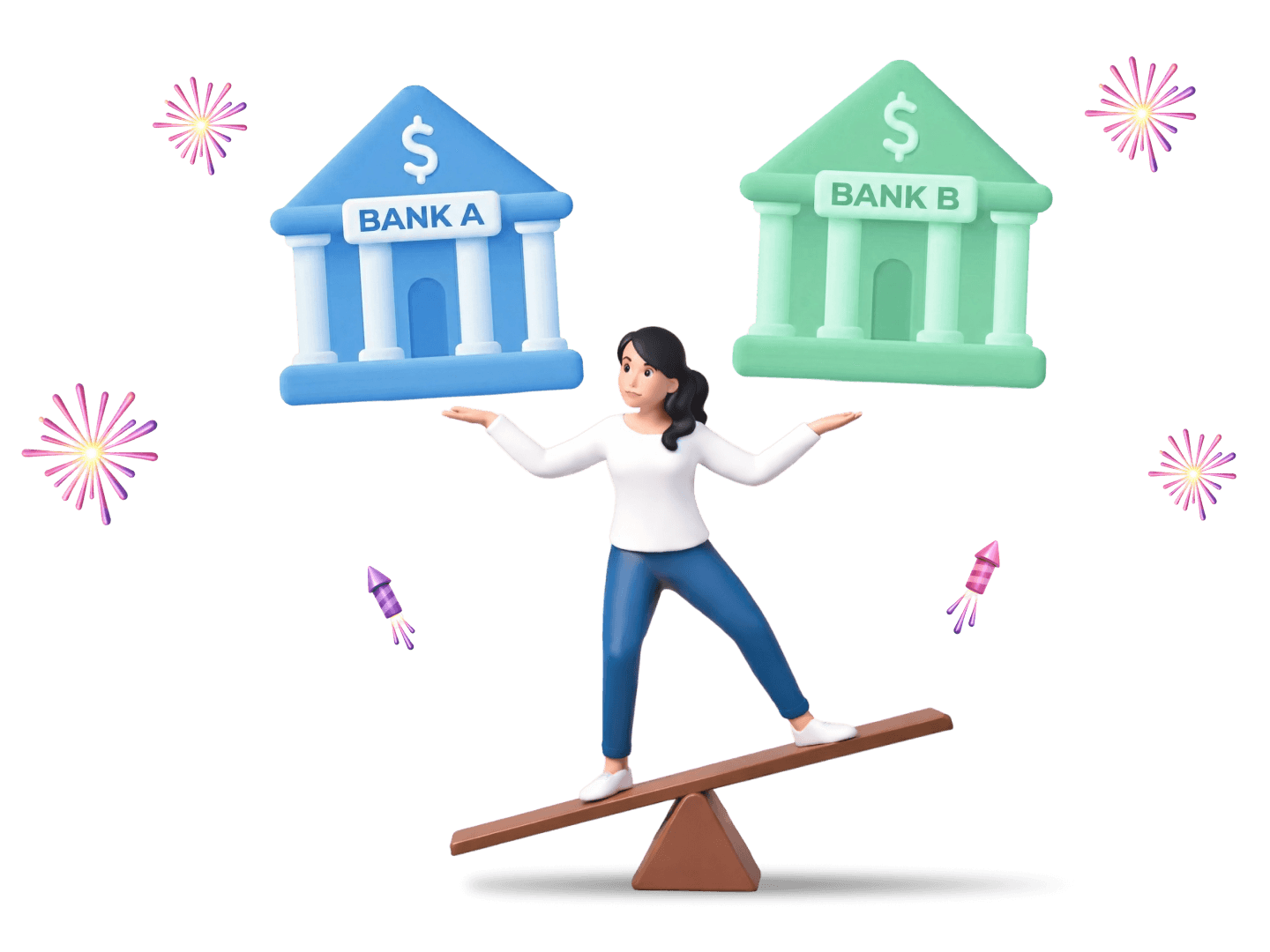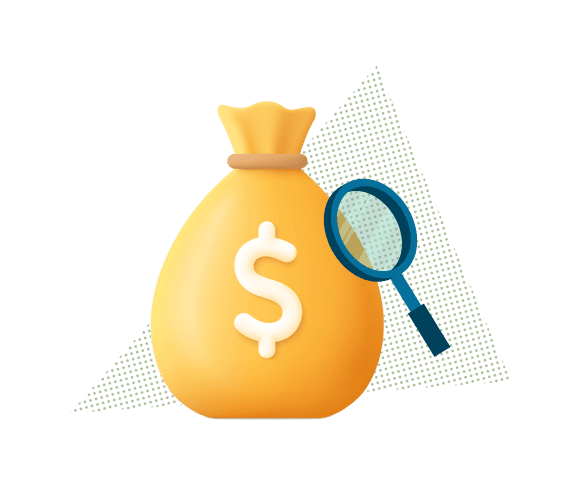Loan Sharks in Singapore: How to Spot an Illegal Lender
Updated: 11 Dec 2025
Loan sharks are illegal moneylenders that operate without a license from the Registry of Moneylenders, which is overseen by the Ministry of Law. They may use threats and intimidation tactics, along with sky-high interest rates, on people who borrow from them.
Though unlicensed moneylending is illegal in Singapore, loan sharks still operate within our society, often targeting those who are most desperate for money. Even as instances of unlicensed moneylending have declined throughout the years, complaints relating to harassment by unlicensed moneylenders or their associates are climbing. In 2021, there were 2,826 cases of such harassment. This went up slightly in 2022 to 2,861 cases and ballooned to 3,160 cases in 2023.
This suggests that the consequences of borrowing from loan sharks are not to be overlooked.
Harassment tactics and threats of violence are nothing new to loan sharks and are often deployed to get debtors to repay their loans. Yet, a 2018 study reveals that only 14%, or 1540 out of 11,000 illegal loans, are paid on time and in full, due to sky-high interest rates and impossible deadlines.
Quick Funds, Zero Hassle with SingSaver
If you’re stuck in a cash crunch, SingSaver makes it easy to find and compare emergency cash options in just minutes with a 70% approval rate—fast, simple, and hassle-free.
What is a loan shark?
Loan sharks should not be confused with payday lenders, which are licensed moneylenders that provide high-cost and short-term loans. Loan sharks are illegal moneylenders that are sometimes referred to in Singapore as “Ah Longs”.
They target the financially vulnerable, such as people who may not qualify for legal loans but nevertheless need emergency money to pay off debts or bills. With the rising cost of living, it’s no surprise that more and more people may find themselves in desperate financial straits.
While licensed moneylenders are subject to the Moneylenders Act and Rules, which stipulates how much they can lend, and imposes limitations on the fees and interest they can charge, loan sharks are not bound by these rules because they operate outside of the law.
Unlike licensed moneylenders or financial institutions, they may not issue you with a Note of Contract, which is a legally binding document outlining the terms of your loan. Loan sharks also do not perform credit checks, which sometimes results in victims being trapped in a cycle of debt due to high-interest loans.
Learning how to recognise loan sharks and the tactics they typically employ will help you to avoid them.
Why loan sharks are dangerous
The pressure of having to pay off debts with stratospheric interest rates is already immense. Coupled with unfriendly reminders like harassment and intimidation tactics often used by loan sharks, it’s understandable that this can take a heavy emotional and social toll on borrowers.
Think of the man whose boss was inundated with over 120 calls over 3 days simply because he had borrowed from multiple loan sharks, and listed him as a guarantor. Or the man whose residence was surrounded by a battalion of delivery riders, summoned by loan sharks who had placed fake orders in order to harass him for repayment. These examples show that borrowing from loan sharks doesn’t just affect borrowers, but also impose dire consequences on people in and outside of their immediate social circle.
In Singapore, it is not only an offence to be an unlicensed moneylender—it is also illegal to assist them. According to the Moneylenders Act 2008, if a person’s bank account or banking peripherals, such as bank tokens, are used to facilitate unlicensed moneylending, they will be deemed liable for assisting in illegal business activities.
First-time offenders, whether guilty of assisting or carrying out the illegal moneylending, may be punished with up to 4 years imprisonment, a fine ranging from $30,000-$300,000 and up to 6 strokes of caning. Those found guilty of harassment on behalf of illegal moneylenders are also subject to up to 5 years of imprisonment, a fine between $5,000-$50,000 and up to 12 strokes of the cane.
How to spot a loan shark
What is the quickest way to ensure that the moneylender you are dealing with is legitimate? Look out for their name or the name of their business on the Ministry of Law’s List of Licensed Moneylenders in Singapore.
Do also check for red flags such as astronomical interest rates, lack of mutually agreed upon Note of Contracts and aggressive tactics. Also be wary of advertisements featuring easy loans, should they appear on channels other than consumer directories, the moneylender’s website or within the place of their business. This is because all other channels of advertisements, such as SMSes or flyers, are not permitted by law.
The Ministry of Law has helpful guidelines for other warning signs you should note:
-
Do they behave in a threatening manner or use abusive language?
-
Are they persuading you to part with your SingPass credentials?
-
Are they holding onto your personal ID documents like your NRIC card, driver’s licence or passport?
-
Are they pressuring you to sign on a blank or incomplete Note of Contract?
-
Do they grant you loans without giving you a copy of the Note of Contract? They may also omit properly going over the terms and conditions with you.
-
Do they grant loans without exercising due diligence? For example, they may approve loans over the phone, SMS or email before even receiving your loan application form or supporting documents like payslips and income tax assessments.
-
Are they withholding part of your loan amount for any reason?
>> MORE: Find the best loans for bad credit in Singapore.
What if a friend or family member lends me money?
Does borrowing from friends and family constitute unlicensed moneylending? Not under Singapore’s legal system. That is because the law technically prosecutes unlicensed moneylending businesses, not the act of moneylending. So, any loans you make to friends and family is perfectly lawful. It’s even legal to charge interest.
The downside of borrowing from people you know personally is that, much like borrowing from unlicensed moneylenders, there is often no official documentation.
After all, who draws up a contract when lending their friends or family a small sum of money? To avoid letting the lack of documentation lead to confusion or even resentment, ensure you iron out the terms of the loan and the timeline for repayment with the other party.
Lastly, only borrow from friends and family you know well and trust. If not, you run the risk of them potentially being a loan shark in disguise, should their sincere and friendly facade crumble.
What if I’ve borrowed money from a loan shark?
What if you’ve unwittingly borrowed money from someone who turned out to be a loan shark? Thankfully, there are legal remedies in place for anybody in Singapore experiencing this situation.
It’s also important to note that you won’t get into trouble with the authorities if you borrow money from a loan shark, because you are considered a victim in this scenario. Don’t be afraid to contact the authorities, if you feel like you need to.
Report any unfair practices by your moneylender by contacting the Registry of Moneylenders at 1800-2255-529. Don’t worry about the moneylender finding out that you’ve lodged a complaint, your details will not be disclosed without your consent. Upon reviewing your case, the Registry may recommend for you to either pursue the matter through the Small Claims Tribunal, or take it to the courts under the Consumer Protection Fair Trading Act (CPFTA).
Lastly, if you’re facing financial difficulties in the form of serious debt, Singapore has several social agencies that specialise in credit counselling. Some of these agencies may even be able to help you negotiate a new debt repayment plan with your creditors.
Never resort to borrowing from loan sharks. Report any suspected loan shark activity you may have come across to the police.
SingSaver Personal Loans Cashback Offer
Enjoy interest rates as low as 1.08% p.a. (EIR from 2.09% p.a.) and up to S$4,900 in cashback when you apply for a personal loan via SingSaver. Valid till 31 March 2026. T&Cs apply.
How to report a loan shark
Encountered unsolicited invitations to take out a loan? Do not interact with the sender. You can verify its legitimacy by calling Singapore’s anti-scam helpline at 1799, which operates 24/7.
Your best bet for reporting unlicensed moneylending or loan scams is to contact the police directly.
You can do so by going to your nearest Neighbourhood Police Centre or submitting an online report through i-Witness. If you prefer to make an anonymous report via phone call, consider dialing the National Crime Prevention Council’s dedicated anti-loan shark X-Ah Long hotline at 1800-924-5664. Otherwise, dial the police hotline at 1800-255-0000.
Only call 999 if you need urgent police assistance to deal with immediate threats from loan sharks.
Relevant articles
Compare the best loans available in Singapore
Get a comprehensive overview of interest rates, loan tenures and other features from top lenders.


